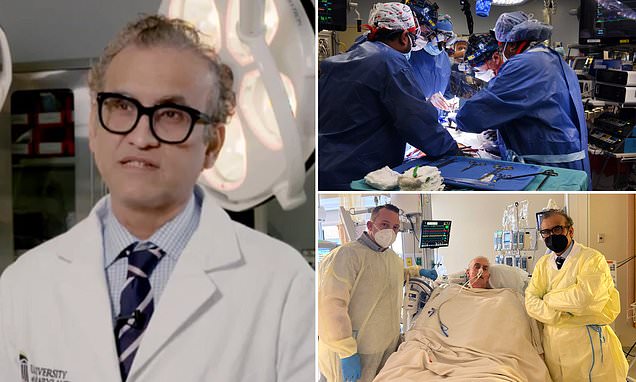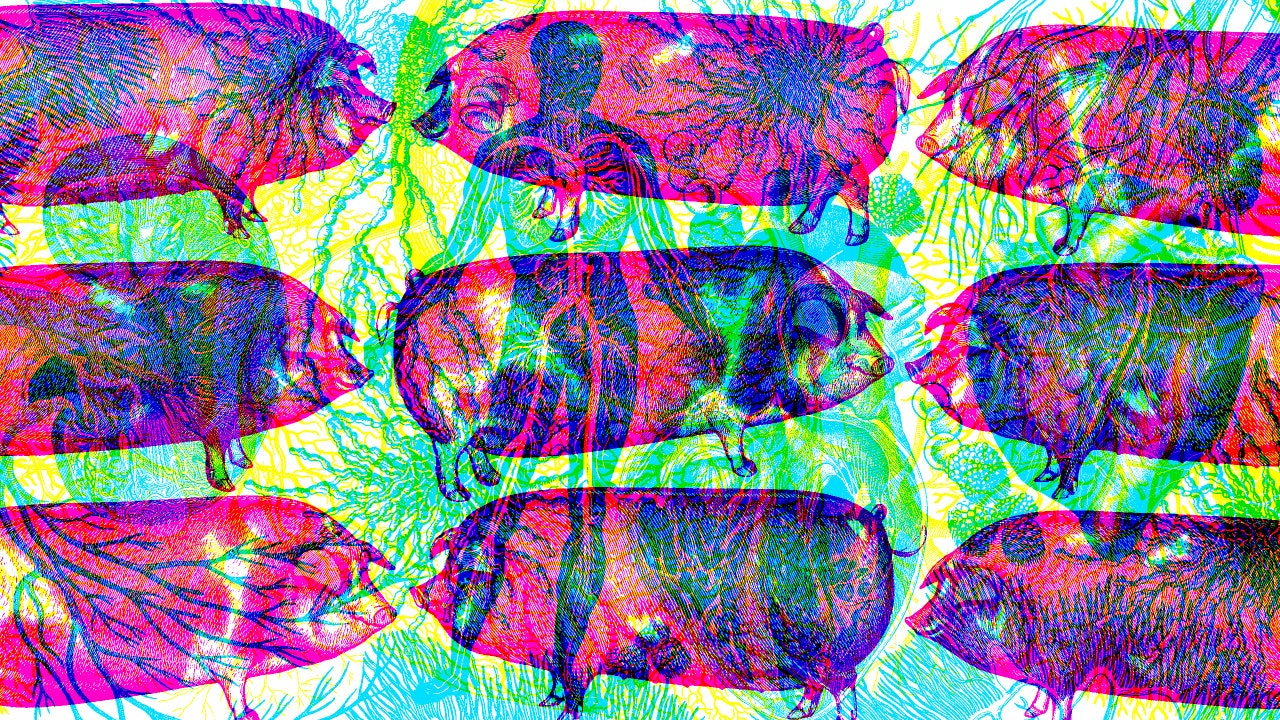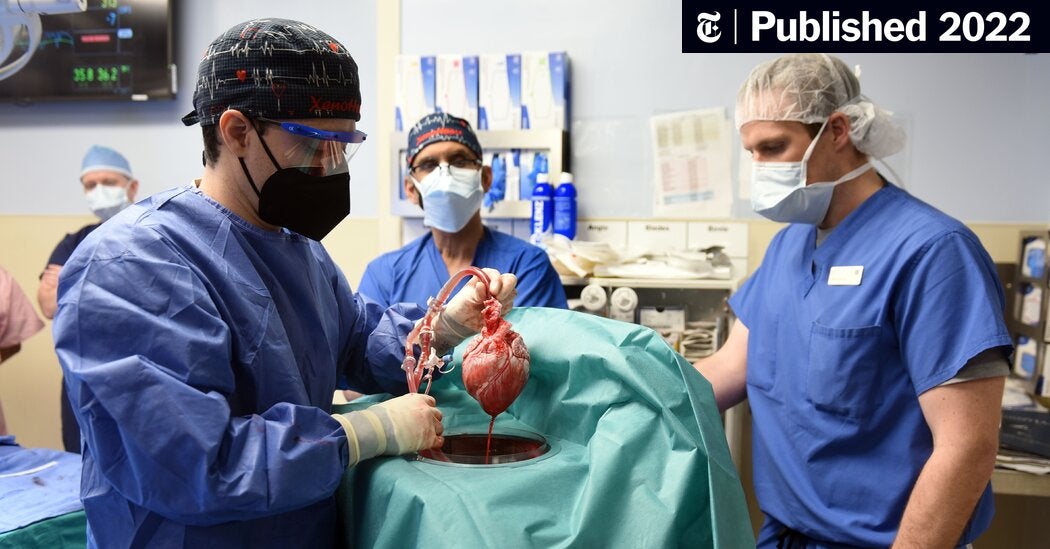- Joined
- Jan 14, 2006
- Messages
- 11,859
- Reaction score
- 20,842
Either you’ve been on Reddit or you’re a big fan of South Park, or both.Now he just needs a body part from a bear.
I think in one of the UMMC videos Griffith says the guy was on VA-ECMO and before that on an IABP.They picked a relatively younger person who wasn’t status 1 for transplant to try to optimize the outcome. I agree we’ll see how he does but if he survives even a few years this is huge.
Ah missed that the news stories interviewing him made him sound like an ambulatory outpatient. If he has a good medium to long term outcome that is even better news then.I think in one of the UMMC videos Griffith says the guy was on VA-ECMO and before that on an IABP.
The gene editing is very cool but you're right about the cost. The way out of end-stage HFrEF is through advancements in either mass-produced regenerative stem cells (big failure so far in trials), or durable VADs and BiVADs with (eventually) subq batteries that can be recharged inductively through wireless transmission.Ah missed that the news stories interviewing him made him sound like an ambulatory outpatient. If he has a good medium to long term outcome that is even better news then.
I honestly have mixed feelings about this—the costs will be astronomical if we suddenly can do unlimited transplants but it has always seemed very harsh to be in a waitlist to be in the worst possible shape before you qualify not knowing if you’ll die or not before it happens and making recovery that much harder.
Pulmonary medicine has the honor of being the shepherd of the worst outcomes of any transplanted organ (discounting small bowel). I’m not worried about a huge influx of pig lung transplants any time soon…The gene editing is very cool but you're right about the cost. The way out of end-stage HFrEF is through advancements in either mass-produced regenerative stem cells (big failure so far in trials), or durable VADs and BiVADs with (eventually) subq batteries that can be recharged inductively through wireless transmission.
Speaking of which, the behemoth health system in my area just lost its lung transplant cert in the last couple years. Lowish volumes, really bad outcomes.Pulmonary medicine has the honor of being the shepherd of the worst outcomes of any transplanted organ (discounting small bowel). I’m not worried about a huge influx of pig lung transplants any time soon…
I think in one of the UMMC videos Griffith says the guy was on VA-ECMO and before that on an IABP.
and a pig.Now he just needs a body part from a bear.
and a pig.
Then he'll be full BearPigMan. Pig Man Bear?
ManBearPig. Southpark reference....
That isn’t true… people are allowed to die when they have a terminal disease and not just sustained on ecmo forever.idk how much more expensive itd be compared to this guy sitting in a hospital until he dies. report says he agreed to do this because his other option was never leaving the hospital
That isn’t true… people are allowed to die when they have a terminal disease and not just sustained on ecmo forever.
That isn’t true… people are allowed to die when they have a terminal disease and not just sustained on ecmo forever.
But in the interview, the surgeon says the patient stated that he wanted to live.
Maybe the real pig heart was there all along.Wow what a surprise twist
I read the guy was non compliant with meds and doctors f/u in the past. I'm surprised they agreed to transplant a non compliant patient. Also, does anyone have any idea what a year of immunosuppressants costs?
So he wouldn’t have qualified for a human donor heart. Maybe they agreed because it’s a pig heart and it’s a science experiment.

When I first read the story, I thought it was kind of ironic. This is sad.

Muslim doctor behind pig heart transplant faces backlash from family
His family asked him 'why are you using this animal?' and questioned why another species wasn't an option. The doctor sought religious counsel from multiple scholars before conducting the transplant.www.dailymail.co.uk

Only if the tech somehow scales up so the cost is reduced by like 90%.
Fascinated to see how this will play out- if it pans out, could signal a sea change in the way we approach end stage heart failure (or kidney failure or liver failure…)


Patient in Groundbreaking Heart Transplant Dies (Published 2022)
David Bennett Sr. had received a heart from a genetically modified pig, a procedure that may yet offer hope to millions of Americans needing transplants.nyti.ms
Sad, but not surprising. Photos from last month looked to me like he was on CRRT, so... hasn't been doing well for some time.
Wow!
Patient in Groundbreaking Heart Transplant Dies (Published 2022)
David Bennett Sr. had received a heart from a genetically modified pig, a procedure that may yet offer hope to millions of Americans needing transplants.nyti.ms
Sad, but not surprising. Photos from last month looked to me like he was on CRRT, so... hasn't been doing well for some time.
It's interesting to think about. Ive seen quotes of the heart functioning well a month into his post-operative course. Which would argue against some sort of rejection in that time frame, though a biopsy would likely be needed.I couldn’t find the cause of his death in any of the news articles. Hopefully its not due to rejection otherwise patients will be reluctant to get a xenotransplant.
Just think, all the arrogant BS my DVM physiology professor from college said about physicians only taking care of one species may no longer be so true.It's interesting to think about. Ive seen quotes of the heart functioning well a month into his post-operative course. Which would argue against some sort of rejection in that time frame, though a biopsy would likely be needed.
It does open a whole host of other issues though such as high-output cardiac failure, anastomotic considerations and also the differences in porcine vs human physiology.
I can imagine it now. Transplant surgeries during daylight hours….After the organs are harvested, the rest of the pig goes into a pit in the ground to cook…. Transplants finish roughly around dinner time….surgical team can enjoy a pit roasted pig together.
Nothing wasted!I can imagine it now. Transplant surgeries during daylight hours….After the organs are harvested, the rest of the pig goes into a pit in the ground to cook…. Transplants finish roughly around dinner time….surgical team can enjoy a pit roasted pig together.
The pig is gene edited with human genes to reduce rejection. Is it cannibalism light?I can imagine it now. Transplant surgeries during daylight hours….After the organs are harvested, the rest of the pig goes into a pit in the ground to cook…. Transplants finish roughly around dinner time….surgical team can enjoy a pit roasted pig together.
I remember reading once that according to cannibals, human meat tastes more porky than beefy.The pig is gene edited with human genes to reduce rejection. Is it cannibalism light?
Fascinating grand rounds from the surgeon a year later. Talks about the post op course and some of the wild immunologic and infectious problems they faced.